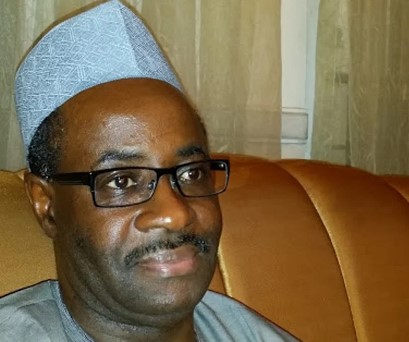The Director-General of the Budget Office, Tanimu Yakubu, has said that the economic strategy of President Bola Tinubu’s administration is hinged on foreign exchange reforms, large-scale infrastructure investment, and energy.
Yakubu said this in his piece titled, ‘From Fragility to Foundations: Inside PBAT’s Political Economy’.
Yakubu explained that floating the naira and settling outstanding FX liabilities have started rebuilding investor confidence, while infrastructure projects in transportation and energy aim to lower business expenses and connect markets nationwide.
He explained, “In early 2024, Nigeria’s naira collapsed to N1,800 per dollar, rattling households and businesses alike. By August 2025, it had strengthened to N1,525. For President Tinubu, this was not just recovery but the opening proof of his broader political economy: building Nigeria on three foundations, credible currency, concrete infrastructure, and kilowatts of power.”
“Currency reform was the first bold stroke. By floating the naira, clearing a $4bn foreign exchange backlog, and bringing remittances into official channels, the government restored some measure of trust. For traders, it meant fewer shocks when pricing goods.
For students abroad, it meant less uncertainty over tuition. For investors, it meant a government that honoured obligations. The naira, long a burden to defend, began to look like a tool to deploy,” Yakubu added.
He claimed that Tinubu’s administration had spent more than N5.9tn on projects in the North-West, with the benefits felt across the country.
“The Kaduna–Kano Expressway, Kano–Maiduguri Highway, and Sokoto–Illela Corridor cut travel times and lower costs for farmers and traders. Lagos, reframed as a logistics hub, connects northern produce to southern ports and eastern manufacturers to western markets. Concrete here is less a regional trophy than a national glue.
“Yet roads without power remain empty. The revival of the 255 MW Kaduna Power Plant shows how electricity must animate infrastructure. For factories, kilowatts mean extra shifts and more jobs. For clinics, they mean functioning refrigerators for vaccines. For children, they mean studying under electric light rather than kerosene lamps. Renewables strengthen the justice dimension: solar irrigation in Zamfara demonstrates how energy can power farms and livelihoods as well as industry,” he asserted.
The DG maintained that the president, with his vision of a national beltway, the Calabar–Maiduguri–Sokoto arc, work on the Badagry–Lagos Expressway, the Illela–Sokoto corridor, and the Lagos–Calabar Coastal Super Highway, was building on his predecessor Muhammadu Buhari’s work.
He concluded, “Muhammadu Buhari poured concrete into signature projects, railways, bridges, and the Second Niger Bridge. Tinubu extends that legacy, turning Buhari’s lines into loops and spines into squares. Rather than rivals, the two appear as successive masons: Buhari laying the pillars, Tinubu closing the frame. The partnership is political continuity made visible in concrete and steel. Risks remain. Nigeria has a history of stalled projects and rising costs. Inflation bites households even as reforms strengthen exporters. Security looms as a constant threat; a rebuilt road can be rendered useless overnight by banditry. And without deeper financial markets, FX stability will remain vulnerable.
“Still, Tinubu’s wager is clear. Currency credibility fuels competitiveness. Concrete stitches the federation into one market. Kilowatts power productivity and dignity. From fragility to foundations, he extends Buhari’s groundwork and sets Nigeria on a course where economic geography and political coalition are bound together.”















